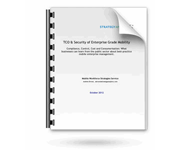Weimaraner genome gives clues to human neural tube disorders Researchers at the University of California, Davis, School of Veterinary Medicine found a gene mutation in Weimaraners associated with spinal dysraphism in dogs that may help scientists better understand neural tube defects in humans. The genomes of four Weimaraners with spinal dysraphism were analyzed, as were the genomes of 96 Weimaraners with no spinal abnormalities. The gene NKX2-8 on chromosome eight, part of a group of genes known to cause developmental defects, mutated in a specific way in Weimaraners that were affected with the neural tube problems. MedicalDaily.com (7/21) K-State Veterinary Health Center cares for menagerie The Kansas State University Veterinary Health Center provides veterinary preventive and specialty care to some 17,000 animals every year, and the facility has advanced technology comparable to that in human hospitals. Veterinary students are involved in the process as clinicians teach while attending to patients, according to veterinarian Susan Nelson. "The students examine the patient and make the diagnosis, present plans to remedy the problem, and then we go over it with them. A veterinarian always signs off on the orders," Dr. Nelson said. The Topeka Capital-Journal (Kan.) (7/20) Other News  | We're Here To Keep You Afloat.
Professional Overhead Expense Insurance from AVMA GHLIT can provide coverage to keep your practice going when you can't. Click here for details. | | Understanding hip dysplasia and treatment options X-rays and clinical signs of hip dysplasia don't necessarily mean dogs will lose function as they get older. With the condition, laxity in the hip joint leads to arthritis over time, according to veterinarian Gary Thompson. "The thing I always try to communicate is that hip dysplasia is simply the appearance of the hips on an X-ray, and it does not always correlate to how your dog will do long-term," Dr. Thompson said. The Blade (Toledo, Ohio) (7/22) Other News  | Editorial review sheds light on injection site sarcomas. While there continues to be controversy over these tumors, they are rare and likely based on the genetic predisposition of individual cats. Read more on this topic in the paper, "Induced or Injection Site Sarcomas: What Do We Really Know?" from L.D. McGill, DVM, PhD, DACVP. Learn more in this SmartBrief-sponsored feature by Merck Animal Health. | |  | Research report: How the Major Mobility Platforms Compare in TCO and Security
Get the details on how Apple iOS, Google Android™, BlackBerry® and Windows Phone stack up in total cost of ownership (TCO) and security. Learn what businesses can glean from the public sector about best-practice Enterprise Mobility Management (EMM). Download the free White Paper. |
 | News from the AVMA Convention The AVMA Veterinary Medical Assistance Teams (VMATs) are celebrating 20 years of disaster response and have introduced VMAT U, a new training program for states and other organizations. Visit the AVMA Annual Convention Daily for that story and other news from the AVMA Convention. |  | Public opinion is a second conscience." -- William Alger, Unitarian minister and writer | | | The news summaries appearing in Animal Health SmartBrief are based on original information from news organizations and are produced by SmartBrief, Inc., an independent e-mail newsletter publisher. The AVMA is not responsible for the content of sites that are external to the AVMA. Linking to a website does not constitute an endorsement by the AVMA of the site or the information presented on the site. Questions and comments should be directed to SmartBrief at avma@smartbrief.com. | Please contact one of our specialists for advertising opportunities, editorial inquiries, job placements, or any other questions.
| Mailing Address:
SmartBrief, Inc.®, 555 11th ST NW, Suite 600, Washington, DC 20004 | | |


No comments:
Post a Comment